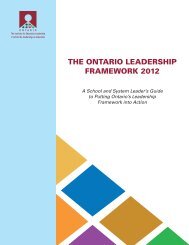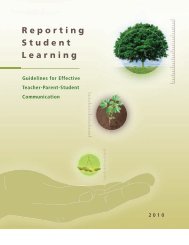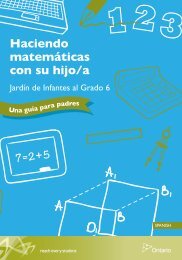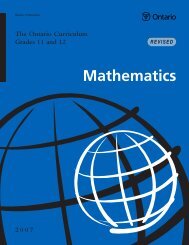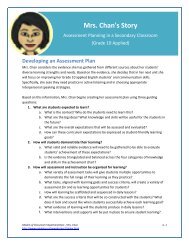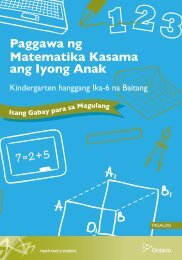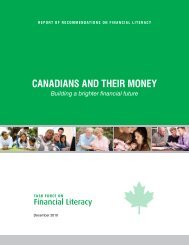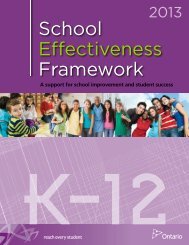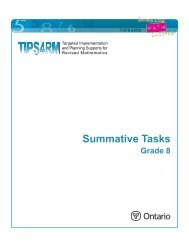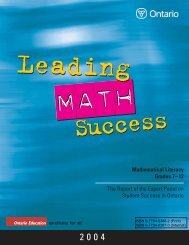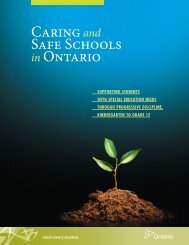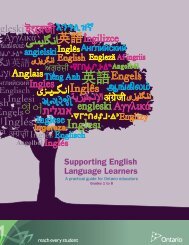Introduction
A Guide to Effective Instruction in Mathematics - eWorkshop
A Guide to Effective Instruction in Mathematics - eWorkshop
You also want an ePaper? Increase the reach of your titles
YUMPU automatically turns print PDFs into web optimized ePapers that Google loves.
Recognize the Importanceof MetacognitionBeing able to identify and monitor one’s own strategiesfor solving problems is a valuable learning skill.Such a skill involves being able to think about one’sthinking. Students benefit from encouragement indeveloping such metacognitive skills as are appropriateto their own developmental level. Students are usingmetacognitive skills when they ask themselvesquestions like the following:• “What am I doing?”• “Why am I doing it?”• “How does it help me?”“Good problem solvers regularly andconsciously reflect on and monitor their ownthought processes. By doing so they are ableto recognize when the technique they areusing is not fruitful and to make a consciousdecision to switch to a different strategy,rethink the problem, search for relatedcontent knowledge that may be helpful, andso forth. . . . Even very young students shouldbe taught to examine their own thoughtprocesses this way.”(Ontario Ministry of Education, 2005, p. 14)Teachers can assist students in developing metacognitive skills by:• reminding students to think about their own thinking;• providing opportunities for students to reflect on a problem at the beginning,in the middle, and especially at the end of a task;• modelling metacognitive skills by talking aloud about their own thinkingprocesses in solving problems in mathematics or in other parts of the curriculum;• providing probing questions or prompts to help students talk about theirthinking – for example, “Why did you use that method?” “Did you think ofanother way first?” “Have you solved a problem like this before?”;• making reflection a critical component of tasks and of the assessment of tasks.Focus on the Significant Mathematical Concepts(“Big Ideas”)Effective mathematics programs provide students with opportunities to gain a thoroughunderstanding of the “big ideas”, or key concepts, of mathematics. Programs thatemphasize the big ideas allow students to make connections, to see that mathematics isan integrated whole, and to gain a deeper understanding of the key concepts. Ratherthan provide specific instructional strategies for individual curriculum expectations,an effective mathematics program takes the approach of clustering expectationsaround a big idea and investigating effective teaching strategies for that big idea.Such an approach is exemplified in the companion documents to this guide that focuson the individual strands.Principles Underlying Effective Mathematics Instruction 33




